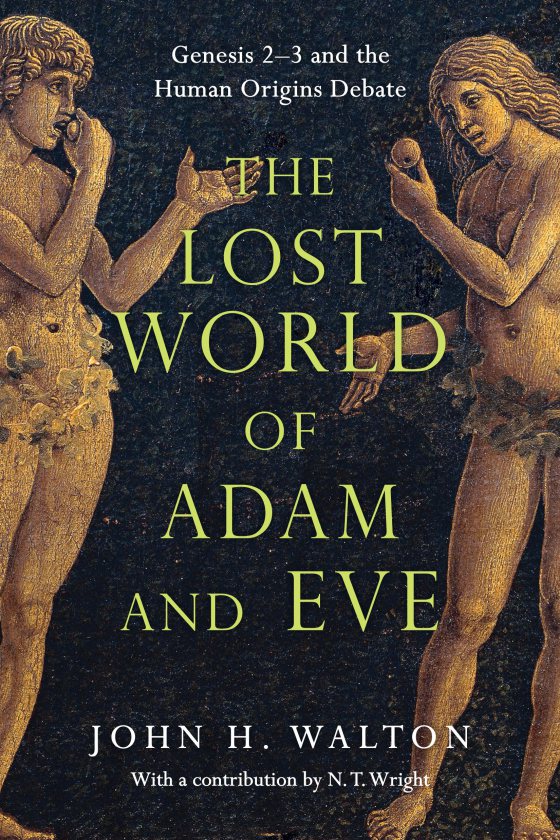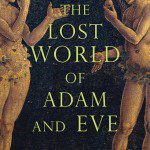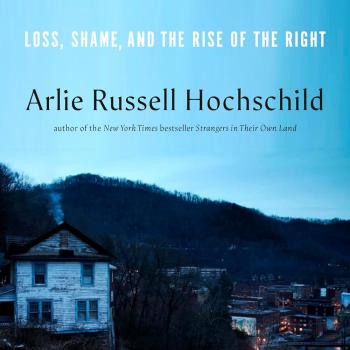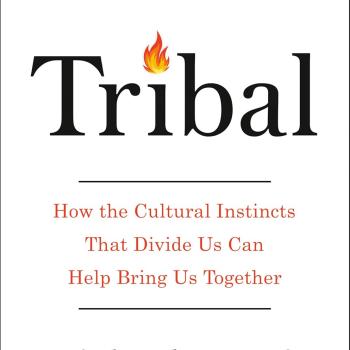Previously, I introduced my series reviewing John Walton’s new book The Lost World of Adam and Eve: Genesis 2–3 and the Human Origins Debate. I set the context by explaining what Walton calls a “functional account” of creation (in contrast to a material account).
 Why tackle this Genesis/creation debate?
Why tackle this Genesis/creation debate?
I’ve been warned by a few people to stay away from this topic on the blog. It’s too much of a lightening rod issue, they say. Certainly so.
The truth, however, is that there are more important things involved here than the age of the earth and the merit of some scientific theory. (Personally, I myself am a bit agnostic about the precise, scientific details that fuel the entire debate.)
As much as I have tired of the discussion over the years, that doesn’t mean it becomes less relevant. Those who work in a place like China, for example, know the frequency with which people want to rehearse the details of the debate. How one responds to the Genesis/creation debate could either be destructive or constructive.
Why Missionaries Should Read This Book
In many contexts, particularly China, the creation-evolution discussion is sure to come up eventually. What’s at stake in these conversations? I’ll list five things.
1. Biblical Authority
For a long time, non-believers have tried to use the theory of evolution to usurp biblical authority. They attempt to show how science contradicts a literal reading of Genesis 1.
2. Biblical Interpretation
Whether we speak with Christians or non-Christians, our discussion will train people how to interpret the Bible. In other words, we will implicitly teach people what are the boundaries for faithful biblical exegesis.
3. Biblical Meaning
If we misread Genesis 1–3, we will miss out on what the text actually intends to say. Perhaps our view is not entirely wrong; yet, it leads us to overlook the passage’s main ideas.
4. Biblical Faith
The creation vs. evolution question is a major stumbling block for many people. By misinterpreting Gen 1–3, we potentially create obstacles that hinder them from believing the gospel or from maturing in their faith.
5. Biblical Unity
Churches, teams, and mission organizations split over topics like these. The conversation is embedded within various Christian subcultures. Emotions run high. I imagine many people assume they have heard all the arguments and so don’t need to listen to what others have to say.
These are not small issues.
A New Starting Line
I think The Lost World of Adam and Eve offers far more than do most other theology and apologetics books that address the subject.
Let me mention of few of the book’s key ideas. In coming posts, I’ll offer more specific thoughts on some of these ideas.
* Adam and Eve were a real couple in history.
* They may not be the first two humans.
* Adam and Eve are archetypes for the humanity.
* We can’t assume that Genesis answers modern questions.
* Genesis 1–3 provides a “functional” (not “material”) account of origins.
* The world was created “good,” but that doesn’t negate the possibility of death prior to the “Fall.” It simply means there was not “disorder.”
* The Bible is more concerned with the theological implications of sin and death, not “original sin” as a theory about genetics
* Gen 1–3 provides a theological message about God and the humanity’s calling; it is not meant to be a scientific text.
This is just a sample of noteworthy ideas you’ll find inside the book. I particularly think we can learn from the way he allows culture and Scripture to interact with one another.
 An Overview
An Overview
There is a natural flow to the different propositions (which represent different chapters). Each chapter is concise and easy to read. The first few chapters summarize ideas found in Walton’s The Lost World of Genesis One: Ancient Cosmology and the Origins Debate and The Lost World of Scripture: Ancient Literary Culture and Biblical Authority (both of which are helpful and interesting reads).
Here is the outline for The Lost World of Adam and Eve.
Introduction
Proposition 1: Genesis Is an Ancient Document
Proposition 2: In the Ancient World and the Old Testament, Creating Focuses on Establishing Order by Assigning Roles and Functions
Proposition 3: Genesis 1 Is an Account of Functional Origins, Not Material Origins
Proposition 4: In Genesis 1 God Orders the Cosmos as Sacred Space
Proposition 5: When God Establishes Functional Order, It Is “Good”
Proposition 6: ’adam Is Used in Genesis 1-5 in a Variety of Ways
Proposition 7: The Second Creation Account (Gen 2:4–24) Can Be Viewed as a Sequel Rather Than as a Recapitulation of Day Six in the First Account (Gen 1:1–2:3)
Proposition 8: “Forming from Dust” and “Building from Rib” Are Archetypal Claims and Not Claims of Material Origins
Proposition 9: Forming of Humans in Ancient Near Eastern Accounts Is Archetypal, So It Would Not Be Unusual for Israelites to Think in Those Terms
Proposition 10: The New Testament Is More Interested in Adam and Eve as Archetypes Than as Biological Progenitors
Proposition 11: Though Some of the Biblical Interest in Adam and Eve Is Archetypal, Yet They Are Real People Who Existed in a Real Past
Proposition 12: Adam Is Assigned as Priest in Sacred Space, with Eve to Help
Proposition 13: The Garden Is an Ancient Near Eastern Motif for Sacred Space, and the Trees Indicate God as the Source of Life and Wisdom
Proposition 14: The Serpent Would Have Been Viewed as a Chaos Creature from the Non-ordered Realm, Promoting Disorder
Proposition 15: Adam and Eve Chose to Make Themselves the Center of Order and Source of Wisdom, Therefore Admitting Disorder into the Cosmos
Proposition 16: We Currently Live in a World with Non-order, Order and Disorder
Proposition 17: All People Are Subject to Sin and Death Because of the Disorder in the World, Not Because of Genetics
Proposition 18: Jesus Is the Keystone of God’s Plan to Resolve Disorder and Perfect Order
Proposition 19: Paul’s Use of Adam Is More Interested in the Effect of Sin on the Cosmos Than in the Effect of Sin on Humanity and Has Nothing to Say About Human Origins (Excursus on Paul’s Use of Adam, by N. T. Wright)
Proposition 20: It Is Not Essential That All People Descended from Adam and Eve
Proposition 21: Humans Could Be Viewed as Distinct Creatures and a Special Creation of God Even If There Was Material Continuity
Conclusion and Summary













